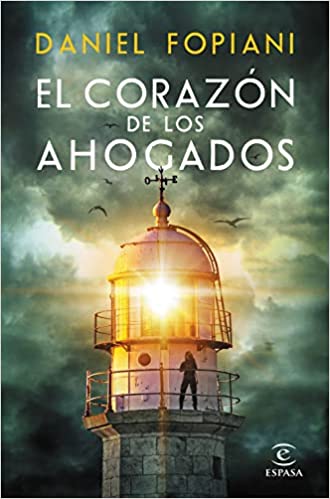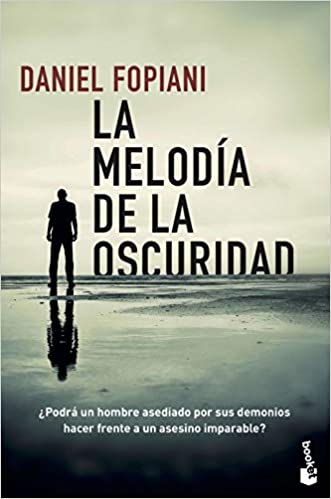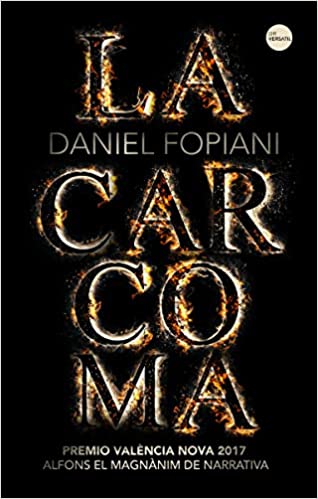There are conditions that mark essences, hallmarks. In Daniel Fopiano something like this happens Victor of the Tree o Louis Stephen. Police these seconds and military the first. And it is that preconceived ideas in the creative never make sense. Because the easy associations between armed bodies and distance from literature or art are mere vagueness, prejudices without much meaning.
In fact, there is something of undoubted plot support in a performance like that of these authors who, at some point in their lives, appear in unpredictable scenarios where risk and the less friendly side of the world awaken visions of what is human in its most radical aspect for evil and for good.
Hence, in the case of Fopiani, perhaps noir is also his landing strip from that knowledge of wild sides. A vein where to find characters from deep depths. With its abysses but also with an unexpected brilliance that stands out greatly among the gloomy, that harbors new hopes in what we call the human condition.
Top 3 recommended novels by Daniel Fopiani
The heart of the drowned
About a very true drama we discover new shadows loom in this story like dark storms for all kinds of disinherited. Those who seek their place in the world by abandoning any vestige of what they may have thought of as home. Beyond the dehumanization and alienation typical of the stateless, hope is a remote island where to find some peace, if possible...
From Timbuktu, Doudou and his wife flee the war towards Melilla in search of a better life. After multiple abuses by the Moroccan police and the mafias that take advantage of their desperation, they manage to get on a small boat. She is pregnant and they fear drowning at sea.
In the small cemetery of the Alborán Island, a mutilated head of African origin appears, surrounded by decapitated seagulls with porcelain doll heads in their place. An islet inhabited only by a small detachment of the Spanish Navy, with the aim of preserving the national territory against the possible arrival of migrants, dead or alive, and to ensure the protected ecosystem of the area in collaboration with a biologist from the Junta from Andalusia.
Sergeant Julia Cervantes, an experienced Marine, is sent with the contingent that travels to Alborán after the macabre discovery. In her life there are only her son Mario and her mother. After several years, she still can't get over the death of her husband.
During a terrible storm, they are completely cut off from the outside world and from the lighthouse's loudspeaker they begin to hear a strange lullaby: “Ten little soldiers went to dinner; one suffocated and nine remained.” When the murders begin to happen, terror is unleashed on the island. Julia must find the culprit if she wants to return safely to her son, but is there someone else on the island or is the murderer among her comrades?
The melody of the dark
Heroes never stop being heroes. Not even when defeat looms around the corner of the last mission. The only option then is to continue pulling what remains of heroism to justify that the idea of doing good always made sense no matter how much one has been plunged into the shadows.
Adriano is a finished man, nothing remains of that seasoned sergeant who suffered an attack in Intxaurrondo that left him blind. The explosion shattered his eye sockets and his entire life: now he is a disfigured monster, blind, who lives in Cádiz dependent on his wife, Patricia, who can barely stand the routine and who, despite the deep love she feels for her husband, she can't help but be anguished, moreover, by the incessant pain of not having had children.
When Lieutenant Román asks for Adriano's help in finding the killer terrorizing the city, he knows that, despite his blindness, he won't be able to refuse. The first victim appears savagely mutilated in the archaeological museum, the second in one of the busiest parks. Adriano intuits that the psychopath is emulating the twelve labors of Hercules. He thus begins an investigation that will reveal deep secrets of human fear, misery and love.
Woodworm
The paradigm of the writer looking for a story to tell. The panic of the blank sheet of paper and the wear and tear of the creative process towards plot perfection and the best characterization of each character. The feeling that when you can't find a good story to tell, you have to pull from nearby resources to try to explain and put black on white the most disturbing plot such as life itself.
A writer in low hours is unable to write anything decent. The commercial success of his latest novel seems to have dragged him into a loop of insecurity that keeps him stuck before the blank page. He forces himself to take a vacation and isolate himself for a while in the Sierra de Cádiz, a spiritual retreat where he can forget about the pressure of the publisher, the unpaid bills and the constant phone calls.
As the days go by, he discovers that, in the cabin where he stays, a new number appears painted on the wall every morning. A countdown with no apparent explanation that ends up plunging him into the greatest of obsessions. His life is likely to be in danger and time is running out. The numbers do not forgive.
A creative crisis, a change of scene, mysterious events, death, love and reconciliation with oneself. All this with a deeply rural and Cadiz flavor, told with a fresh, agile and open narrative. These are distinctive features of Fopiani that make it stand out within the genre with slightly underground touches. La Carcoma is a town, but also a metaphor.



